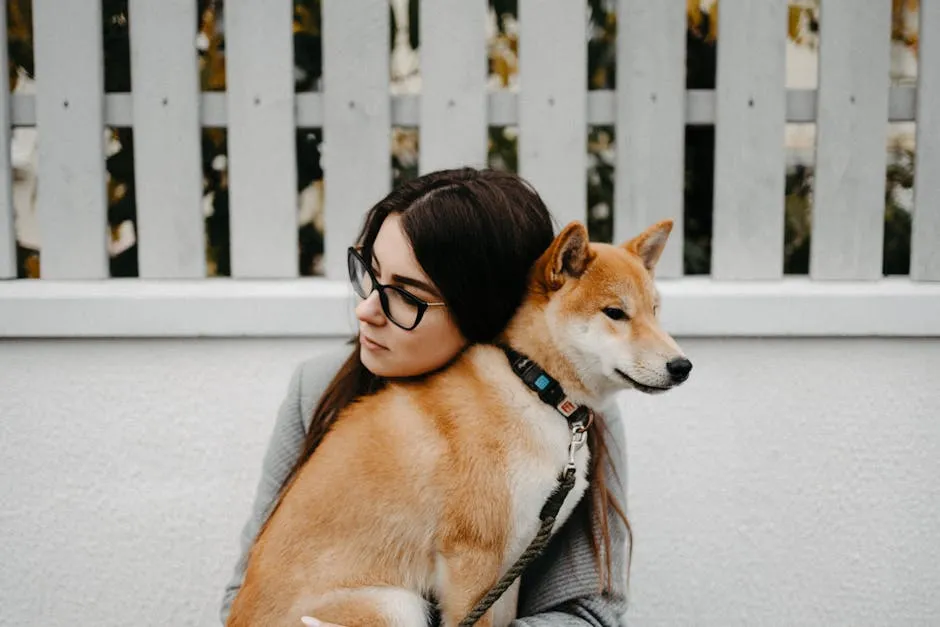Introduction
Choosing the right dog breed is a big deal. After all, dogs are not just pets; they become part of the family. Picking a breed that fits your lifestyle can make the difference between harmonious companionship and a chaotic household.
When you bring a dog into your life, you’re signing up for a long-term commitment. Prepare for years of joy, love, and yes, a little chaos! Dogs require time, energy, and care. So, understanding what you can offer is crucial.
This article aims to be your go-to guide for selecting a dog breed that fits your unique lifestyle. We’ll cover everything from living situations to family dynamics, ensuring you find the perfect furry friend to match your vibe.
Understanding Your Lifestyle
Assessing Your Living Situation
Your living space plays a significant role in choosing the right dog breed. If you live in a cozy apartment, a giant dog may feel like a fish out of water. Smaller breeds like the Pomeranian or French Bulldog can thrive in tight quarters. They cuddle well, and their petite size makes them perfect for your urban lifestyle.
On the flip side, if you have a house with a sprawling yard, you have more flexibility. Larger breeds like Labradors or Golden Retrievers will love having room to run. But don’t forget about your neighbors! If you live in a place with noise restrictions, consider breeds known for being quieter.
Neighborhood considerations are equally important. If you’re in a busy area, a dog that’s comfortable with noise and crowds is essential. Not all pooches are social butterflies. Some prefer a serene environment, so make sure to align your choice with your surroundings.

In summary, evaluate both your home and neighborhood. The right living situation can enhance your dog’s happiness and well-being, setting the stage for a fulfilling relationship. And for your furry friend’s comfort, don’t forget to get a cozy Dog Bed to make them feel at home!
Evaluating Your Activity Level
Your daily activities greatly influence which dog breed will fit best. Are you a couch potato or a weekend warrior? High-energy breeds like Border Collies and Siberian Huskies thrive with active owners. If your ideal weekend includes long hikes, these dogs will be your ultimate partners in crime.
Conversely, if you enjoy a more laid-back lifestyle, consider breeds that don’t require as much exercise. Basset Hounds and Bulldogs are known for their calm demeanor, making them perfect for quieter households. Both options can offer companionship but cater to different energy levels.
Also, think about your daily routine. If you have a 9-to-5 job, you might want a breed that doesn’t mind spending a few hours alone. Dogs like the Chow Chow or Shiba Inu tend to be more independent. But if you have the flexibility to spend more time at home, a social breed that craves interaction might be a better fit.

Assess your activity level honestly; the right match will make both you and your dog happier. And if you’re looking for a great way to keep your dog entertained while you’re busy, consider a Dog Puzzle Toy. These toys are perfect for keeping your pup mentally stimulated and entertained!
Family Considerations
Family dynamics are crucial when selecting a dog breed. If you have young children, opt for breeds known for their gentle nature, like Golden Retrievers or Beagles. These dogs are typically patient and enjoy the company of little ones.
On the other hand, if you have existing pets, compatibility is key. Some dogs are more sociable than others. Breeds like Cavalier King Charles Spaniels tend to get along well with other pets, while others may prefer to be the only furball in the household.
It’s also interesting to note that some breeds can adapt better to a busy family life. Dogs that are playful and friendly can help create a lively home environment. But if you’re looking for a calm companion, breeds like the Bernese Mountain Dog might be your best bet.

In the end, consider your family’s needs, your other pets, and how a new dog will fit into your daily life. Finding a breed that works for everyone will set the stage for a joyful and harmonious household. And to help with training, you might want to invest in a Dog Training Clicker to make training sessions more effective!
Energy Level
Choosing a dog breed based on energy levels is crucial. Dogs can be divided into three categories: low, moderate, and high-energy.
Low-Energy Breeds: These dogs enjoy their couch time. Think Basset Hounds and Bulldogs. They’re perfect for those who enjoy a more relaxed lifestyle.
Moderate-Energy Breeds: These pups, like Labrador Retrievers or Beagles, appreciate a good walk but are also happy to snuggle on the sofa. They strike a balance between activity and relaxation.
High-Energy Breeds: If you’re an outdoor enthusiast, energetic breeds like Border Collies or Siberian Huskies are your best pals. They thrive on exercise and mental challenges. If you’re not ready for a workout buddy, these might not be the best fit!

Temperament
Dog temperament matters significantly when picking a breed. Some dogs are friendly, while others can be protective or independent.
Friendly Breeds: Breeds like Golden Retrievers and Beagles are known for their sociable nature. They do well in family settings and with kids.
Protective Breeds: German Shepherds or Rottweilers are great if you need a loyal guardian. They’re often devoted and alert, making them excellent watchdogs.
Independent Breeds: Dogs like the Shiba Inu or Chow Chow enjoy their space. They might not be the best for first-time owners. Understanding your environment and lifestyle helps in selecting the right temperament.

Grooming Needs
Grooming requirements vary widely among dog breeds. Some need regular grooming, while others are more low-maintenance.
High-Grooming Breeds: Poodles and Yorkshire Terriers require frequent grooming to maintain their coats. If you love grooming, these breeds might be ideal!
Low-Grooming Breeds: Breeds like Beagles or Boxers have short coats and require minimal grooming. They’re perfect for busy folks.
Hypoallergenic Breeds: Allergy sufferers should consider breeds like Poodles or Maltese. These dogs are known to produce fewer allergens, making them suitable for sensitive individuals. Always spend time with a breed before committing, to see how your allergies react. For more information, check out the best hypoallergenic dog breeds for allergy sufferers.
And while you’re grooming, a Dog Grooming Kit can make the process easier and more enjoyable for both you and your dog!

Researching Specific Breeds
Finding the right dog breed involves thorough research. Utilizing breed databases like the AKC or The Kennel Club is essential. These resources provide detailed information about various breeds, including temperament, energy levels, and grooming needs.
Engaging with breed-specific clubs can offer unique insights. Members often share firsthand experiences and tips. Additionally, speaking with experienced dog owners can help clarify characteristics and responsibilities associated with specific breeds.
Visiting local shelters or rescue organizations can also provide valuable information. They often assess dogs’ personalities and behaviors, helping you find a match that suits your lifestyle. Remember, the more informed you are, the better your chances of a successful dog ownership experience! And don’t forget to grab a copy of “The Art of Raising a Puppy” by the Monks of New Skete for expert advice on training and care!

Responsible Breeding Practices and Puppy Mills
Puppy mills? They sound cute, right? But think again! These commercial breeding facilities prioritize profit over the health and well-being of dogs. Often, they keep dogs in cramped, unsanitary conditions. Puppies born in these mills can face a host of health issues.
Ethical breeding practices are crucial. Responsible breeders prioritize the health and temperament of their dogs. They conduct health screenings and provide a loving environment. When searching for a dog, always choose a breeder who treats their animals with care and respect. This ensures you bring home a pup with a bright future.
Supporting ethical breeders not only protects the dogs but also promotes better breeding standards overall. So, when you’re choosing your new best friend, remember: adopt, don’t shop—unless you’re shopping from a responsible breeder! And to keep your new pup safe during car rides, consider a Dog Seat Belt for their safety!

Preparing for Your New Dog
Creating a Safe Environment
Puppy-proofing your home is essential for a new dog. Start by removing hazards. Keep cleaning supplies, medications, and small objects out of reach. Dogs are curious creatures! They love to explore, and you don’t want them to munch on something harmful.
Next, establish a cozy space for your pup. Create a designated area with a comfy bed and toys. This will help your new friend feel secure. Routines are crucial too! Regular feeding, potty breaks, and playtime create a sense of stability. Training should be part of your daily schedule. Consistent commands help your dog learn quickly, strengthening your bond while keeping both of you entertained.
For feeding time, don’t forget to get some high-quality Dog Food that suits your pup’s needs!

Financial Considerations
Owning a dog comes with financial responsibilities. It’s not just about the initial costs. You’ll need to budget for food, regular vet check-ups, and vaccinations. Training classes can be a smart investment, ensuring your dog learns proper manners.
Don’t forget about pet insurance! This can cover unexpected health costs. It’s like a safety net for your furry friend. Consider your dog’s breed and potential health issues when selecting a plan. It’s better to be prepared than to face a hefty vet bill without a backup! And for those messy moments, make sure to stock up on Dog Waste Disposal Bags to keep your space clean!

FAQs
What is the best dog breed for families with young children?
When it comes to family-friendly breeds, a few stand out. Labrador Retrievers are known for their gentle nature and playful spirits. They’re patient and love to play with kids! Golden Retrievers are another fantastic choice, known for their friendly demeanor and loyalty. Beagles, with their curious minds and friendly personalities, also make great companions for children. If you’re looking for smaller options, consider Pugs or Cavalier King Charles Spaniels. Both breeds are affectionate and enjoy being around kids. Always supervise playtime, regardless of the breed. This ensures a safe and loving environment for everyone. Finding a dog that fits your family’s needs can create lasting memories and a joyful home!
Please let us know what you think about our content by leaving a comment down below!
Thank you for reading till here 🙂 And if you’re planning a road trip with your new dog, a Dog Travel Bag can help you pack all the essentials!
All images from Pexels





